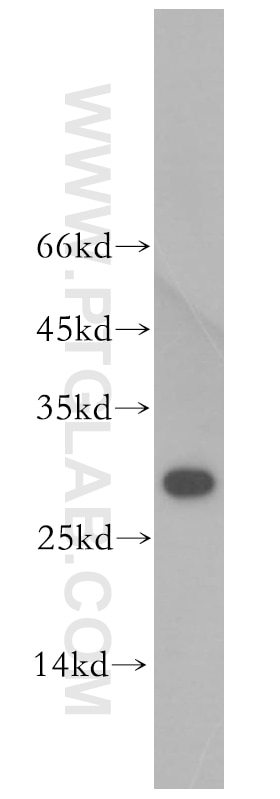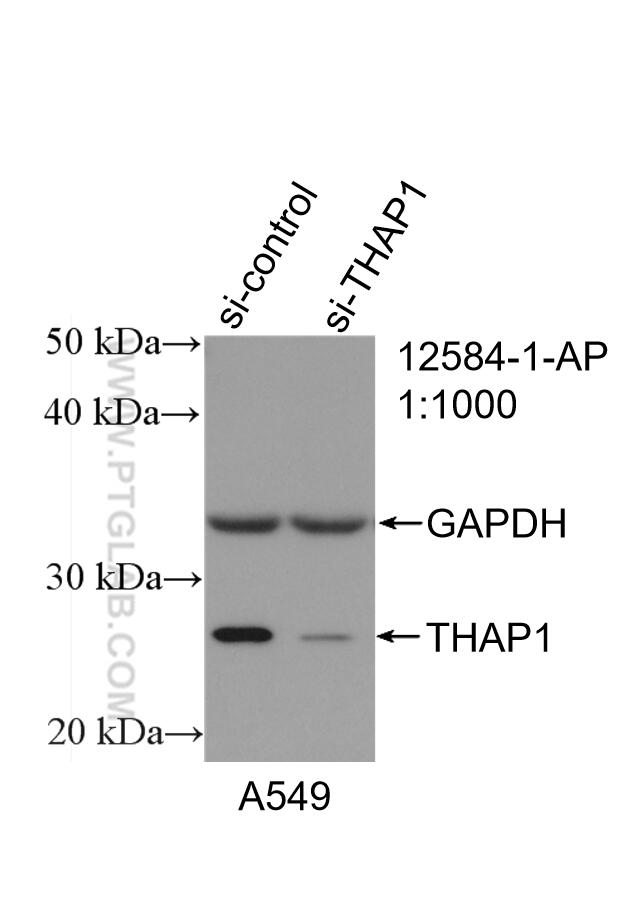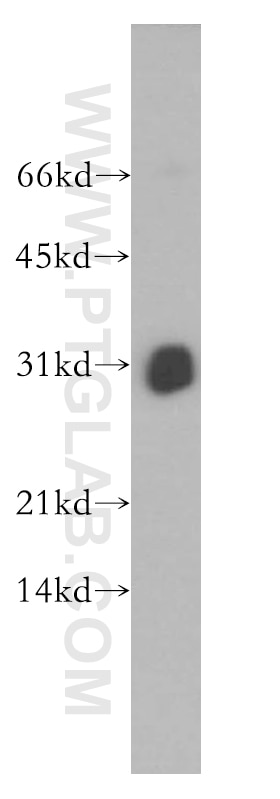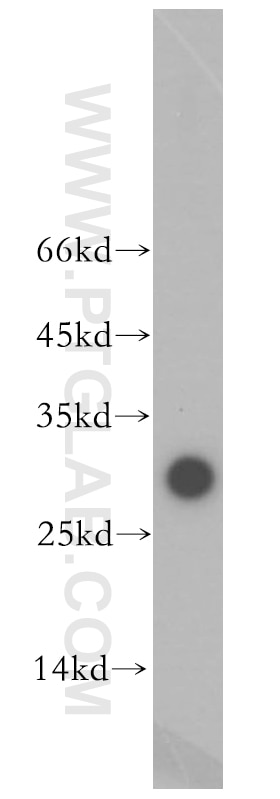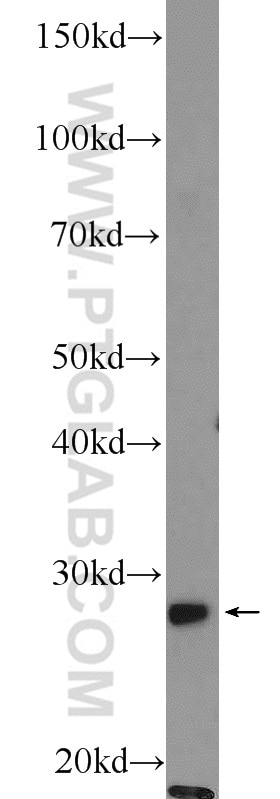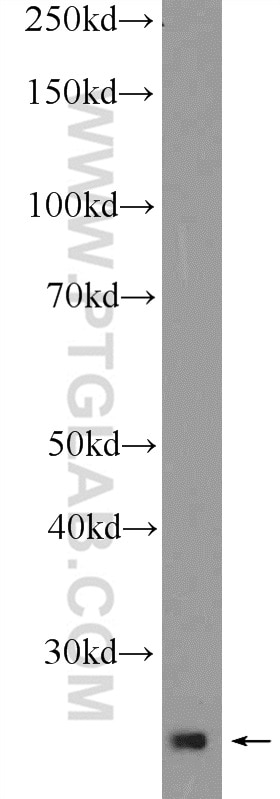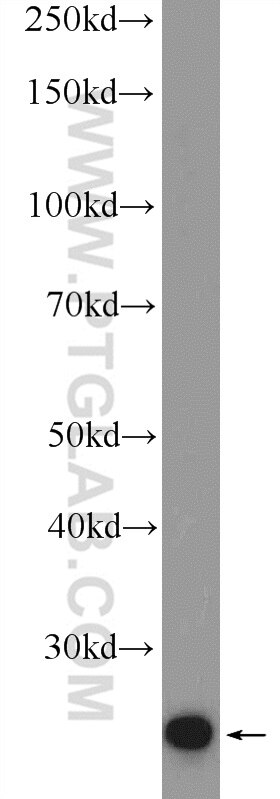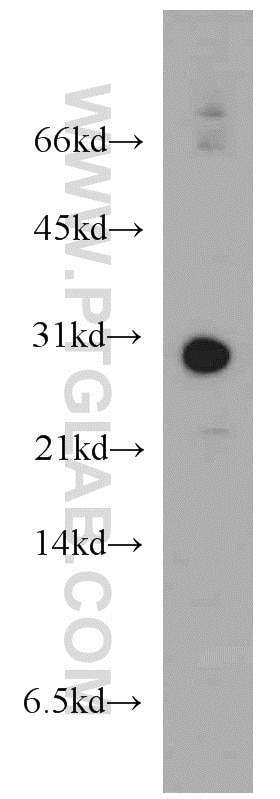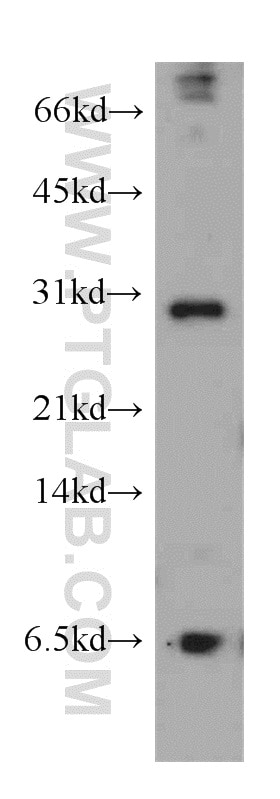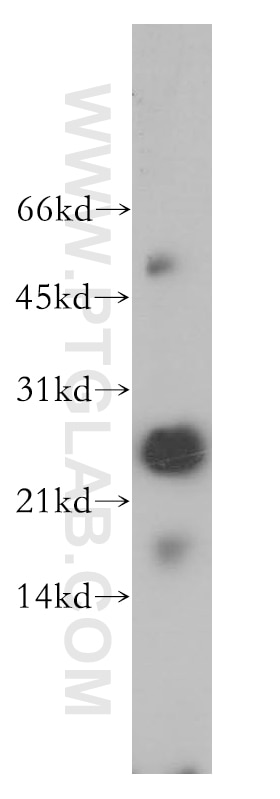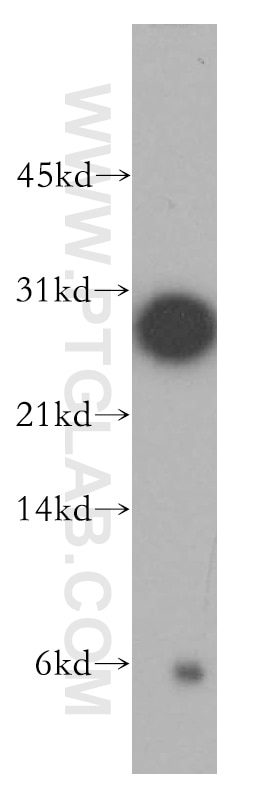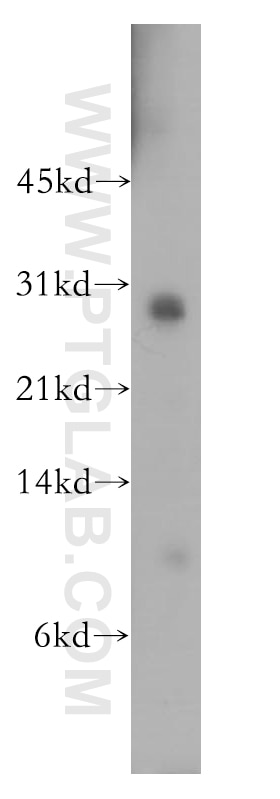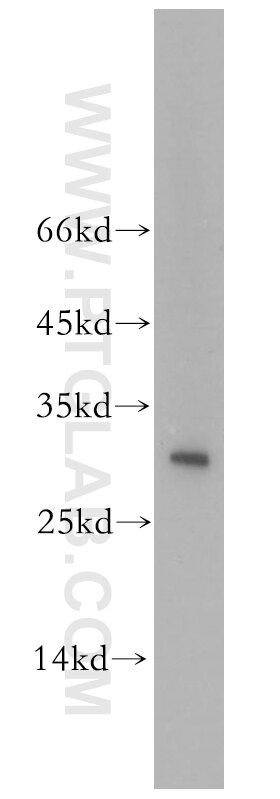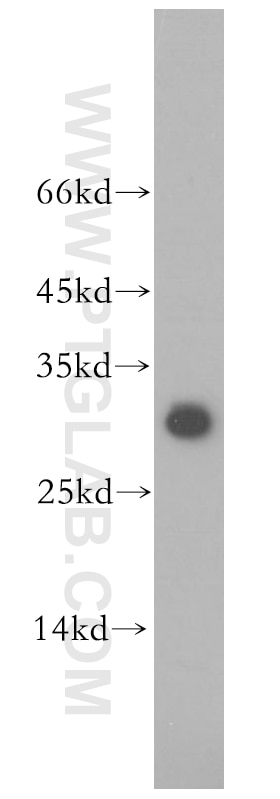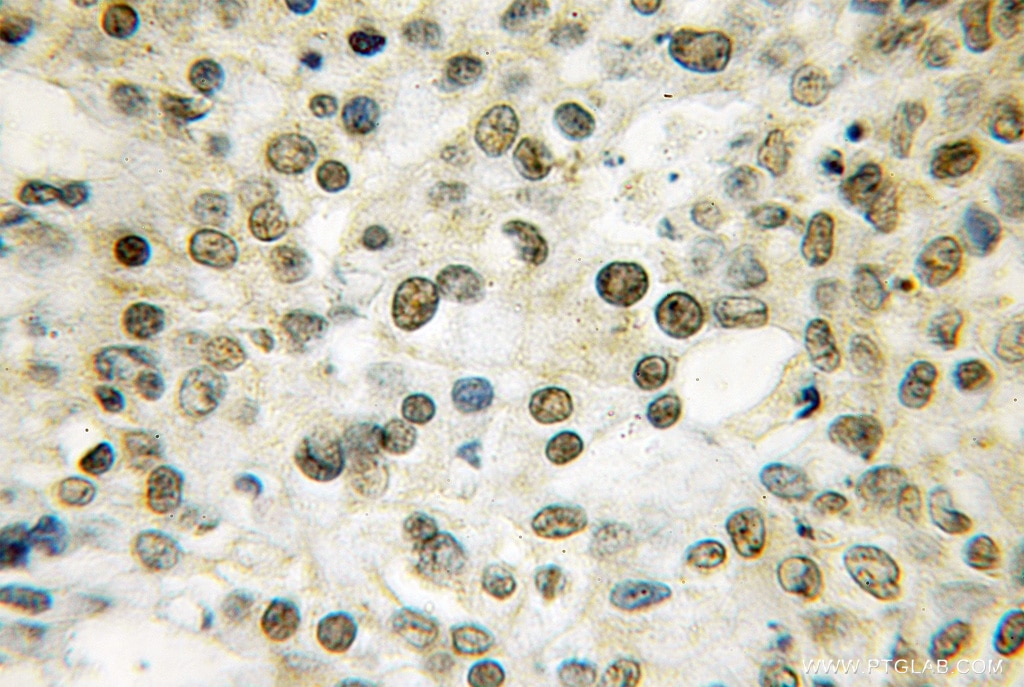Tested Applications
| Positive WB detected in | HepG2 cells, human brain tissue, HEK-293 cells, HeLa cells, human heart tissue, A375 cells, SGC-7901 cells, mouse brain tissue, mouse heart tissue |
| Positive IHC detected in | human colon cancer tissue Note: suggested antigen retrieval with TE buffer pH 9.0; (*) Alternatively, antigen retrieval may be performed with citrate buffer pH 6.0 |
Recommended dilution
| Application | Dilution |
|---|---|
| Western Blot (WB) | WB : 1:500-1:1000 |
| Immunohistochemistry (IHC) | IHC : 1:20-1:200 |
| It is recommended that this reagent should be titrated in each testing system to obtain optimal results. | |
| Sample-dependent, Check data in validation data gallery. | |
Published Applications
| KD/KO | See 5 publications below |
| WB | See 13 publications below |
| IHC | See 1 publications below |
| ChIP | See 1 publications below |
Product Information
12584-1-AP targets THAP1 in WB, IHC, ChIP, ELISA applications and shows reactivity with human, mouse, rat samples.
| Tested Reactivity | human, mouse, rat |
| Cited Reactivity | human, mouse, rat |
| Host / Isotype | Rabbit / IgG |
| Class | Polyclonal |
| Type | Antibody |
| Immunogen |
CatNo: Ag3285 Product name: Recombinant human THAP1 protein Source: e coli.-derived, PGEX-4T Tag: GST Domain: 1-213 aa of BC021721 Sequence: MVQSCSAYGCKNRYDKDKPVSFHKFPLTRPSLCKEWEAAVRRKNFKPTKYSSICSEHFTPDCFKRECNNKLLKENAVPTIFLCTEPHDKKEDLLEPQEQLPPPPLPPPVSQVDAAIGLLMPPLQTPVNLSVFCDHNYTVEDTMHQRKRIHQLEQQVEKLRKKLKTAQQRCRRQERQLEKLKEVVHFQKEKDDVSERGYVILPNDYFEIVEVPA Predict reactive species |
| Full Name | THAP domain containing, apoptosis associated protein 1 |
| Calculated Molecular Weight | 213 aa, 25 kDa |
| Observed Molecular Weight | 25-30 kDa |
| GenBank Accession Number | BC021721 |
| Gene Symbol | THAP1 |
| Gene ID (NCBI) | 55145 |
| RRID | AB_2201672 |
| Conjugate | Unconjugated |
| Form | Liquid |
| Purification Method | Antigen affinity purification |
| UNIPROT ID | Q9NVV9 |
| Storage Buffer | PBS with 0.02% sodium azide and 50% glycerol, pH 7.3. |
| Storage Conditions | Store at -20°C. Stable for one year after shipment. Aliquoting is unnecessary for -20oC storage. 20ul sizes contain 0.1% BSA. |
Background Information
THAP1 belongs to the THAP1 family. It is a DNA-binding transcription regulator that regulates endothelial cell proliferation and G1/S cell-cycle progression. THAP1 may also have pro-apoptopic activity by potentiating both serum-withdrawal and TNF-induced apoptosis. Mutations in THAP1 have been associated with dystonia 6. THAP1 encodes a transcription factor with mostly unknown targets. It regulates the expression of DYT1 (TOR1A), another dystonia-causing gene. After characterization of the TOR1A promoter, THAP1 binds to the core promoter of TOR1A. Wild type THAP1 represses the expression of TOR1A, whereas dystonia 6-associated mutant THAP1 results in decreased repression of TOR1A. Catalog#12584-1-AP is a rabbit polyclonal antibody raised against full-length of huamn THAP1.
Protocols
| Product Specific Protocols | |
|---|---|
| IHC protocol for THAP1 antibody 12584-1-AP | Download protocol |
| WB protocol for THAP1 antibody 12584-1-AP | Download protocol |
| Standard Protocols | |
|---|---|
| Click here to view our Standard Protocols |
Publications
| Species | Application | Title |
|---|---|---|
Nat Genet Mutations in the histone methyltransferase gene KMT2B cause complex early-onset dystonia. | ||
Mol Cell The dystonia gene THAP1 controls DNA double-strand break repair choice.
| ||
Brain DYT6 mutated THAP1 is a cell type dependent regulator of the SP1 family.
| ||
Dev Cell The DYT6 Dystonia Protein THAP1 Regulates Myelination within the Oligodendrocyte Lineage. |

